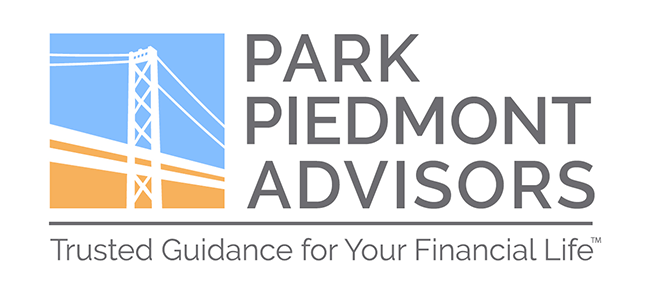What’s the best investment you’ve ever made?
Reflexively, some might point to a particular stock in their portfolio – maybe they took a flier on Berkshire Hathaway a few decades ago or bought Amazon when it was primarily an online book seller.
Some lucky few might shine their light on something more tangible: a garage sale masterpiece or a rookie baseball card of a long-ago hero; for others, maybe it’s a highly appreciated piece of real estate.

For Park Piedmont clients, and those philosophically aligned with our approach to investing, maybe you’d look not to an individual stock, but instead to a low-cost, broadly diversified, indexed investment – like Vanguard’s Total Stock Market Index Fund ETF (symbol: VTI). We can just picture it now: it’s been invested in over the years, with a disciplined focus on the long-term, avoiding any inclination at market-timing or attempts to outsmart the market.
OK, well done.
But what if, in considering our “best investments,” we widen the lens?
A book I recently read makes the point that doing so may benefit our life’s bottom line.
The Good Life, by Robert Waldinger and Marc Schulz, distills the research findings of the Harvard Study of Adult Development (the “Study”), a remarkable research project that began in 1938 – and is still going strong. The study was initially designed to try and figure out what makes people healthy, and – more than that – what makes people thrive.
Over eighty-plus years, the Study has tracked several hundred of the same individuals, and many of their offspring, recording the granular details of each subject’s life experience: memories of when they were little kids; their first loves; raising a family; work life; leaving the workforce; aging; health ups-and-downs; and the end-of-life – not to mention routine blood work and other medical tests.
Here’s an excerpt from the book’s first chapter:
“Through all the years of studying these lives, one crucial factor stands out for the consistency and power of its ties to physical health, mental health, and longevity. Contrary to what people might think, it’s not career achievement, or exercise, or a healthy diet. Don’t get us wrong: these things matter (a lot). But one thing continuously demonstrates its broad and enduring importance:
Good relationships.

In fact, good relationships are significant enough that if we had to take all eighty-[plus] years of the Harvard Study and boil it down to a single principle for living, one life investment that is supported by similar findings across a wide variety of other studies, it would be this:
Good relationships keep us healthier and happier. Period.” (10)
At some level, this just sounds intuitively right. And yet, the authors note, it can be hard – very hard – to put this knowledge into practice in our everyday lives. They cite two main reasons: first, while “the good life may be a central concern for most people… it is not the central concern of most modern societies… The modern world prioritizes many things ahead of the lived experience of human beings.” (30)
Second, at a more elemental, biological level, our brains, as extraordinarily sophisticated as they are, “often mislead us in our quest for lasting pleasure and satisfaction.” (30) It turns out, we humans are just not consistently good decision-makers at knowing what’s best for us. As a result, we tend to prioritize what’s measurable – wealth accumulation, status, achievement, to name a few – when those markers, while no doubt important, are not as lastingly important as we, or the broader culture, might assume.
This is an important point that Dr. Waldinger, the co-author, makes in an accompanying lecture. In balancing work, money, and relationships, the emphasis should be “both-and,” not “either-or.” Having sufficient financial resources is crucial for helping people feel, and be, secure. As Dr. Waldinger reports, the trouble arises when people place too much weight on work, wealth accumulation, and social status, leaving too little time and energy for the relationships in their lives.

So, let’s return to our opening question: when we think about our best investments – and what gives us the best bang for our “whole-life” buck – what if we turn the spotlight onto our relationships? As The Good Life informs us, after eight decades of scientific research, it’s time spent on our relationships – with family, friends, community members – that offers among the highest, most predictable returns on investment.
